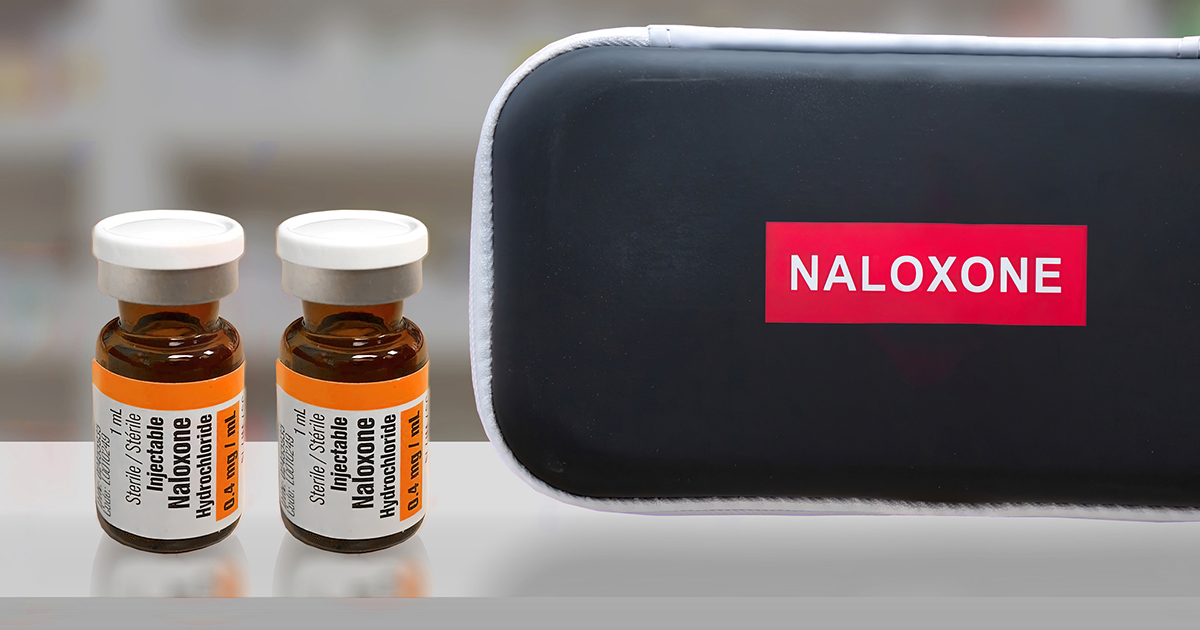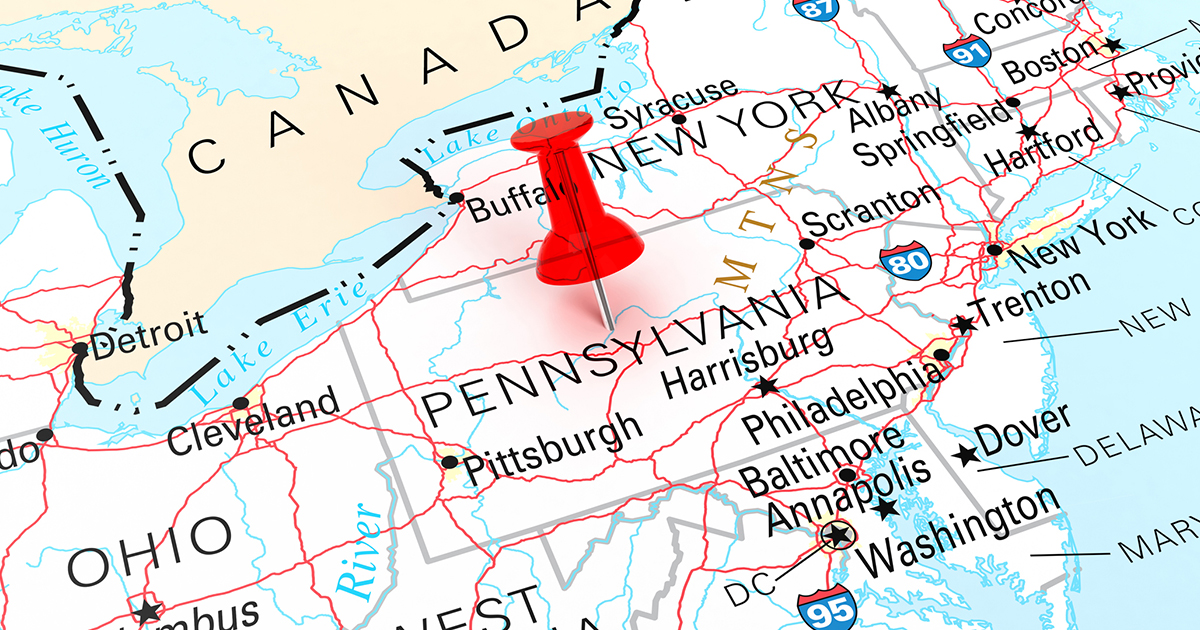Risks of Prolonged Opioid Use
Due to the increased awareness of the addictive nature of opioids, most medical professionals now only prescribe them for a limited time and carefully monitor patients.
When taken correctly, prescription opioids may still cause:
- Drowsiness
- Constipation
- Slowed heart rate
- Slowed breathing
- Addiction
Whether taken as prescribed or as a part of an opioid use disorder, there are increased risks with long-term opioid use.
Risks associated with long-term use include:
- Depression
- Heart disease
- Liver disease
- Brain damage
- HIV/AIDS
- Hepatitis C
- Addiction
- Extremely slowed breathing and heart rate
In addition to the health risks associated with long-term use, there is always the risk of overdose and death.
Opioids in Pennsylvania: Stats

The opioid epidemic continues to be the largest public health and safety concern that faces the residents of Pennsylvania. According to the Attorney General, in 2021, over 5,168 Pennsylvanians lost their lives due to overdose. Put another way, that means that every day, 14 Pennsylvanians are lost due to overdose. Sadly, these numbers continue to rise.
From January 2018 to August 2022, the Pennsylvania opioid data dashboard recorded the following:
- Over 74,623 doses of naloxone administered by EMS
- Over 45,240 ER visits for opioid overdoses
- Over 7,754 cases of Neonatal Abstinence Syndrome (opioid withdrawals caused by opioid exposure in the womb)
Additional reports state that the Pennsylvania opioid epidemic caused:
- 5,341 drug overdose deaths in 2021, a 3% increase from 2020. Of these deaths, 84% were opioid-related, and 78% involved fentanyl.
- The death of one Pennsylvanian by overdose every 2 hours.
Opioids in Pennsylvania Is an Ongoing Issue
There is no denying that steps must be taken at the local, Pennsylvania, and national levels to combat the rise of opioid misuse and related deaths. This growing epidemic requires the coordination and skills of numerous platforms and governing bodies. Of these, the Department of Health and Human Services is the most significant.
In 2017, the DHHS officially declared a public health emergency concerning the opioid issue. A five-point strategy was created to address this growing issue.
Improving Accessibility to Programs
These programs focus on raising awareness, providing tools for prevention, developing treatment and recovery strategies, and discovering healthy pain management options for those who currently rely on opioids for relief.
Improving Reporting Platforms and Increasing Data Collection
Real-time reports are key to understanding the increasing severity of this issue. Information reviewed in hindsight doesn’t help to properly address the current condition of the opioid epidemic. It is important to monitor ongoing trends and outcomes that are associated with this issue on a state and national level.
Providing Better Treatment Options
It is important that nationwide strategies are developed to discover more ways to provide the lasting pain relief opioids can provide. This is the best way to ensure that doctors can safely decrease the population’s reliance on opioids as painkillers.
Better Access to Overdose-Reversing Medications
Medications like naloxone, when properly administered, can reverse the effects of an overdose and save someone’s life. With the proper training, anyone can learn how to properly administer this medication. Accessibility is also key, which is why many areas have distribution centers and even vending machines for quick access.
Ongoing Research Is Necessary
It is important that research is not only encouraged but also supported. This is the best way to develop more effective tools for interventions, treatment, and minimizing the harm associated with use.
On a national level, these steps are intended to help the country address the opioid crisis, decrease opioid use, reduce opioid overdose, and eventually heal. While these guidelines continue to shift and change, they lay a framework states like Pennsylvania can build upon. Numerous states have adopted and modified these initial steps to fit the needs of their communities.
Pennsylvania’s Commitment to Battling the Ongoing Opioid Threat

The opioid epidemic is a serious national issue that affects communities across the US. However, awareness, education, prevention, research, and implementation of solutions do not only fall on the federal government. State and local governments, as well as organizations and individuals, must take up the fight, too. It will take the work of all available parties, professionals, and industries to ensure we can rise above this crisis that continues to grow.
In Pennsylvania, we are faced with the truth that we are losing a member of our community every two hours to opioid overdose. To change this reality, we must continue to develop programs to help our citizens overcome opioid addiction. We must also do what we can to mitigate the risk of opioid addiction.
Prescription Drug Monitoring Program (PDMP)
This program is designed to help prevent prescription drug misuse. The PDMP collects data on all controlled substance prescriptions filled in the state of Pennsylvania. This helps to ensure that patients are receiving the treatment they need while reducing the risk of misuse and addiction.
It can be a challenge for medical professionals to determine the true needs of a patient. Since doctors take an oath to ensure their patients have the best treatment and care options possible, it can be difficult to question the motives of a patient. However, the rise in opioid addiction has revealed the true lengths people may go to secure opioid prescriptions. This can include hopping to different hospitals or doctors, lying about pain levels, or trying to seek the care they don’t truly need.
The PDMP helps to prevent opioid access for individuals who try to work the system. With an ongoing file of these individuals readily available, providers can quickly identify red flags, ensuring doctors reduce their part in this ongoing crisis.
Some major updates for this program include:
- In December 2018, a reporting tool created by the attorney general became available for physicians and citizens to report illegal activity involving prescription medication.
- Since September 2019, the PDMP has been shared with 21 other states as well as military health systems. This is vital in ensuring that prescription histories are carefully monitored regardless of state lines.
- In January 2022, messages concerning the PDMP system were sent to all prescribers, pharmacists, and PDMP delegates.
- This program continues to provide an educational curriculum for healthcare providers, pharmacists, and patients.
Pennsylvania Substance Use Navigation (PA-SUN) Program
The (PA-SUN) Program is a new statewide initiative that is designed to provide enhanced treatment options for patients struggling with an opioid use disorder. This includes increasing access to medication-assisted treatment that uses FDA-approved medication for the treatment of OUD.
Medication-assisted treatment (MAT) is the use of medications in addition to counseling and other therapies to treat opioid use disorder. Long-term opioid use can cause changes to the chemistry of the brain and lead to physical dependency. Abruptly stopping use can be detrimental to a person's health, so medication is often used to help individuals make the transition into sobriety. When carefully administered and monitored, medication can be a great tool for helping both the body and mind heal, while other therapies support changes for lasting health.
MAT medication for OUD often includes buprenorphine. This has been approved by the FDA as a safe method of treating opioid use disorder. Patients who receive buprenorphine are less likely to use illicit opioids, spread diseases, overdose, or die.
PA-SUN has increased the number of emergency departments capable of providing alternatives and life-saving interventions such as buprenorphine, naloxone, and other tools and resources. In Pennsylvania, this program offers free technical assistance, consultation, and support for proper treatment for patients with OUD. This support is provided by expert opioid medical clinicians who stay up to date on the latest techniques and tools in OUD care.
Naloxone for Overdose Reversal

Substance use in Pennsylvania remains a huge problem. There is a standing order for prescriptions of naloxone. Naloxone is a medication that can reverse an overdose caused by an opioid drug. All Pennsylvanians can get naloxone at their local pharmacy at any time to have it on hand to help friends, family, and even other citizens.
While administering naloxone can be straightforward, it is recommended that interested individuals complete a training course approved by the Pennsylvania Department of Health. Proper training ensures you understand the signs and symptoms of an opioid overdose and learn the proper techniques for administering the various forms of naloxone available.
The Opioid Threat in Pennsylvania
As our state continues to work towards providing the resources and education needed to combat the ongoing threat of opioid abuse and addiction, it is important to understand that opioid use disorder is far more common than many people think. Breaking away from OUD can feel impossible, especially if you are doing so alone. That's why the availability and accessibility of addiction recovery resources are so vital.
Resources:
- https://www.attorneygeneral.gov/protect-yourself/opioid-battle/
- https://www.health.pa.gov/topics/disease/Opioids/Pages/Opioids.aspx PA-SUN
Clinical Director
Christine Todd is a Licensed Professional Counselor and an Advanced Certified Drug and Alcohol Counselor who enjoys working directly with a population that struggles with addiction and mental health disorders. Christine brings many years of clinical experience to the team at Recovery Cove, where she is currently the Clinical Director. In her role, she oversees the clinical department as a leader, educator and mentor, designing programming and protocols for a diverse client population.
Learn More About Christone Todd, MS, LPC, CAADC








